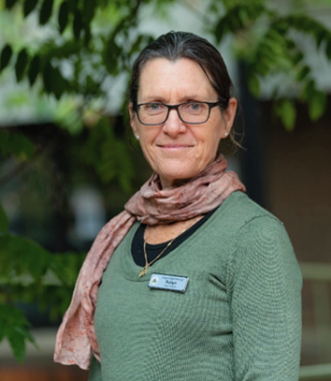CST is a structured program that delivers 14 small-group sessions in-person or online. CST sessions are led by trained health professionals or family carers. After completing the program, a follow-up or ‘maintenance CST’ program can be arranged.
What does the research say about CST?
Studies have shown that CST improves cognitive functioning, language comprehension and production, quality of life and the well-being of people with dementia in a cost-effective manner. A Cochrane review and meta-analysis of 36 Randomized Control Trials published by Professor Spector in 2019 and updated in 2023 demonstrated positive effects on cognition, self-reported and proxy-rated quality of life and activities of daily living.
Who is CST suitable for?
CST is suitable for people with a diagnosis of mild to moderate dementia; can hear well enough to take part in a small group discussion; can see well enough to engage with the visual materials; is likely to remain in a group for each session of at least 45 minutes. CST programs can be conducted in a wide variety of setting including residential aged and dementia care, day care services, memory clinics and medical and community settings.
What does CST involve?
All CST programs are presented in manuals to ensure the consistency and fidelity of the program. Each CST session has a theme, such as food, using money or current affairs and uses materials and hands-on activities to reinforce thinking, new learning and involvement in the program. Group identity is strengthened with a group name and song chosen by participants to commence each session. Participants are and orientated to time, place and events, are guided through reminiscence and discussion led by facilitators. Group activities are tailored to the interests and needs of participants.
Making CST ‘business as usual’ in Australia
CST is a valuable therapy for people living with dementia and families, however is not yet widely available in Australia. To address this, an independent Australian CST Community of Practice was established in 2022 for practitioners, researchers and for people interested in CST. The Community of Practice provides a central point of contact for information, support and identifying people in a wide range of Australian settings delivering or interested to deliver CST.
The Community of Practice aims for 2023-24 are to:
- identify and engage with people and organisations currently delivering CST in Australia;
- increase the number of CST facilitators and programs in Australia, through a CST Master trainer program;
- promote CST to Government, stakeholder organisations and individuals
- support national and international research and dissemination concerning CST, including liaison with the University College London CST International Centre about the work of the Australian Community of Practice.
Join us!
We invite interested clinicians, researchers, and professional carers to join us in the Australian CST Community of Practice bi-monthly meetings. We meet online.
Training is available to increase awareness of CST and expand the number of facilitators in Australia. A CST Master Trainer was appointed in 2023 and CST facilitator training will be conducted in-person on an annual basis, with the next CST training to be held in Sydney, on 7 September 2024. Online CST facilitator training can also be accessed from the International CST Centre.

For more information on this website
Carers can visit:




